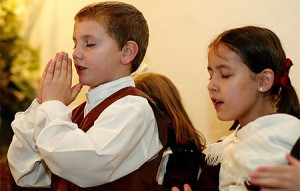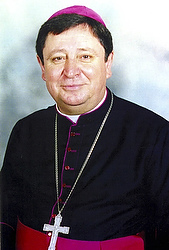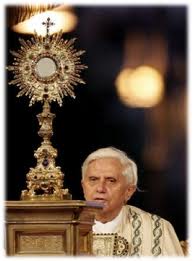 In paragraph 24 of Vatican II’s Decree on the Adaptation and Renewal of Religious Life (Perfectae Caritatis, 1965), we find this summary of what we might call “vocation ministry”:
In paragraph 24 of Vatican II’s Decree on the Adaptation and Renewal of Religious Life (Perfectae Caritatis, 1965), we find this summary of what we might call “vocation ministry”:
“Priests and Christian educators should make serious efforts to foster religious vocations, thereby increasing the strength of the Church, corresponding to its needs. These candidates should be suitably and carefully chosen. In ordinary preaching, the life of the evangelical counsels and the religious state should be treated more frequently. Parents, too, should nurture and protect religious vocations in their children by instilling Christian virtue in their hearts.
“Religious communities have the right to make themselves known in order to foster vocations and seek candidates. In doing this, however, they should observe the norms laid down by the Holy See and the local Ordinary.
“Religious should remember there is no better way than their own example to commend their institutes and gain candidates for the religious life.”
Three things jumped off the page to me when I recently reread this document:
(1) Vatican II encourages more preaching on the evangelical counsels and the religious state, yet how often do we hear anything from the pulpit on the splendor of consecrated life?
(2) Parents not only nurture but protect their children’s vocations by instilling Christian virtue. One wonders how many religious vocations have been lost by parents’ failure to foster Christian virtue in the home through their own words and actions, and through the appropriate exercise of discipline.
(3) Religious have the right to promote their community, but in the end the most effective means of attracting young men and women is through their own personal witness of lives completely and joyfully given to the Lord.
Like this:
Like Loading...
 According to a Catholic Culture report citing Vatican journalist Andrea Tornielli, Pope Benedict XVI called a meeting with the leaders of the Roman Curia earlier this week to discuss several concerns about the state of religious life.
According to a Catholic Culture report citing Vatican journalist Andrea Tornielli, Pope Benedict XVI called a meeting with the leaders of the Roman Curia earlier this week to discuss several concerns about the state of religious life. Last Sunday the Dominican Sisters of St. Cecilia (aka the “
Last Sunday the Dominican Sisters of St. Cecilia (aka the “ In a
In a  Fittingly on today’s feast of St. Anthony, the following is taken from the “
Fittingly on today’s feast of St. Anthony, the following is taken from the “ In paragraph 24 of Vatican II’s Decree on the Adaptation and Renewal of Religious Life (
In paragraph 24 of Vatican II’s Decree on the Adaptation and Renewal of Religious Life ( I was perusing the vocation-related articles at
I was perusing the vocation-related articles at 
 Sometimes it’s really difficult to decide upon just the right anniversary gift. However, I think our readers will agree that the following recommendation from the United States Conference of Catholic Bishops for the upcoming 60th anniversary of Pope Benedict’s priestly ordination–Eucharistic adoration for priestly vocations–is right on the money.
Sometimes it’s really difficult to decide upon just the right anniversary gift. However, I think our readers will agree that the following recommendation from the United States Conference of Catholic Bishops for the upcoming 60th anniversary of Pope Benedict’s priestly ordination–Eucharistic adoration for priestly vocations–is right on the money.  Here are some interesting vocation-related stories I came across last week, in case you missed them:
Here are some interesting vocation-related stories I came across last week, in case you missed them: The Cistercian abbey linked to the Basilica of the Holy Cross in Jerusalem (
The Cistercian abbey linked to the Basilica of the Holy Cross in Jerusalem (